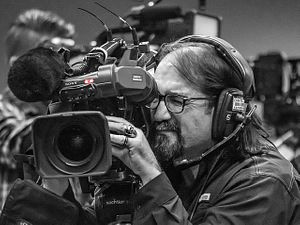The Foreign Correspondents’ Club of China (FCCC) released its annual report on the working conditions of foreign journalists in China this week, claiming that the Chinese authorities have increased efforts to deny foreign correspondents access to large parts of the country.
Conducting a survey with 117 foreign journalists who belong to the club in Beijing, the FCCC found that 40 percent of respondents felt reporting conditions deteriorated in 2017. Nearly 50 percent said they experienced interference, harassment, and physical violence in China; 15 percent said they encountered difficulties during the visa renewal process for problems related to their reporting; 26 percent said their news sources had been harassed, detained, or called in for questioning. In addition, an increasing number of journalists expressed concern about surveillance and invasion of privacy.
Charlie Campbell of TIME magazine told the FCCC that “Fewer people will speak on the record, especially Chinese academics. No one wants to comment on the government, even positive stuff, on the record.”
Notably, the report also pointed out that foreign journalists have received direct pressure from the Chinese foreign ministry, too.
The foreign ministry’s response to the FCCC’s report was harsh and dramatic.
At the regular press briefing on January 30, China’s foreign ministry spokesperson, Hua Chunying, said that the accusations in this report were “very unreasonable.” She asked all journalists who were present to raise a hand if “any of you believes that the FCCC has spoken your mind, or you find yourself approving the contents of this report.”
Since no hand raised, Hua urged these journalists to tell the FCCC that “foreign journalists present here today do not agree with its report’s conclusion, so it has in no way reflected the genuine opinion of almost 600 foreign journalists stationed in China. ”
While that was already quite a scene, the drama continued at the regular press briefing on February 1.
A journalist from Sankei Shimbun — who hadn’t attended the January 30 briefing — confronted Hua directly, saying: “Now, I am here and I want to say that I agree with that report. Because we have personally experienced some of the situations mentioned in it.”
“We also expressed our hope that the Chinese side should make some improvements,” the journalist added.
In her reply, Hua attacked both the journalist and the newspaper:
Why other media haven’t met the problem you mentioned? Why does Sankei Shimbun feel that way? Don’t you think it is how you behave sometimes that needs to be reflected upon? I believe, when the majority of foreign journalists and press can carry out their work and coverage smoothly in China, but you, Sankei Shimbun, alone has met problems, then you yourself need to do some self-reflection and self-examination.
All the foreign journalists are our friends. We hope that what you write and what you capture on your cameras will present a China that is real, multi-dimensional, and comprehensive. We hope that you, as bridges between China and the world, could help enhance two-way communication and increase mutual understanding and cooperation. We welcome and support all your positive efforts to that end.
Hua’s remarks could have added another footnote to the FCCC’s report.

































